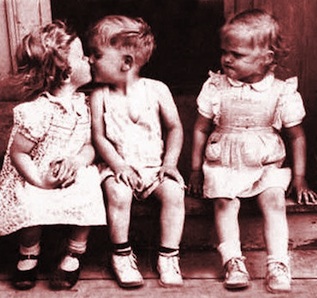
I guess you could say that I’ve been having a tough time with jealousy lately.
A new study suggests jealousy really is “blinding” as University of Delaware researchers discovered women distracted by unpleasant emotional images were unable to recognize familiar images.
The researchers believe their results reveal something profound about social relationships and perception: It has long been known that the emotions involved in social relationships affect mental and physical health, but now it appears that social emotions can literally affect what we see.
The research appears in the April issue of the journal Emotion published by the American Psychological Association.
UD psychology professors Steven Most and Jean-Philippe Laurenceau and their colleagues tested heterosexual romantic couples in a lab experiment. The romantic partners sat near each other at separate computers.
The woman was asked to detect targets (pictures of landscapes) amid rapid streams of images, while trying to ignore occasional emotionally unpleasant (gruesome or graphic) images.
The man was asked to rate the attractiveness of landscapes that appeared on his screen. Partway through the experiment, the experimenter announced the male partner would now rate the attractiveness of other single women.
At the end, the females were asked how uneasy they felt about their partner rating other women’s attractiveness.
The finding?
The more jealous the women felt, the more they were so distracted by unpleasant images that they could not see the targets.
This relationship between jealousy and “emotion-induced blindness” emerged only during the time that the male partner was rating other women, helping rule out baseline differences in performance among the women.
* Click here to subscribe to Beyond Blue and click here to follow Therese on Twitter and click here to join Group Beyond Blue, a depression support group. Now stop clicking.

